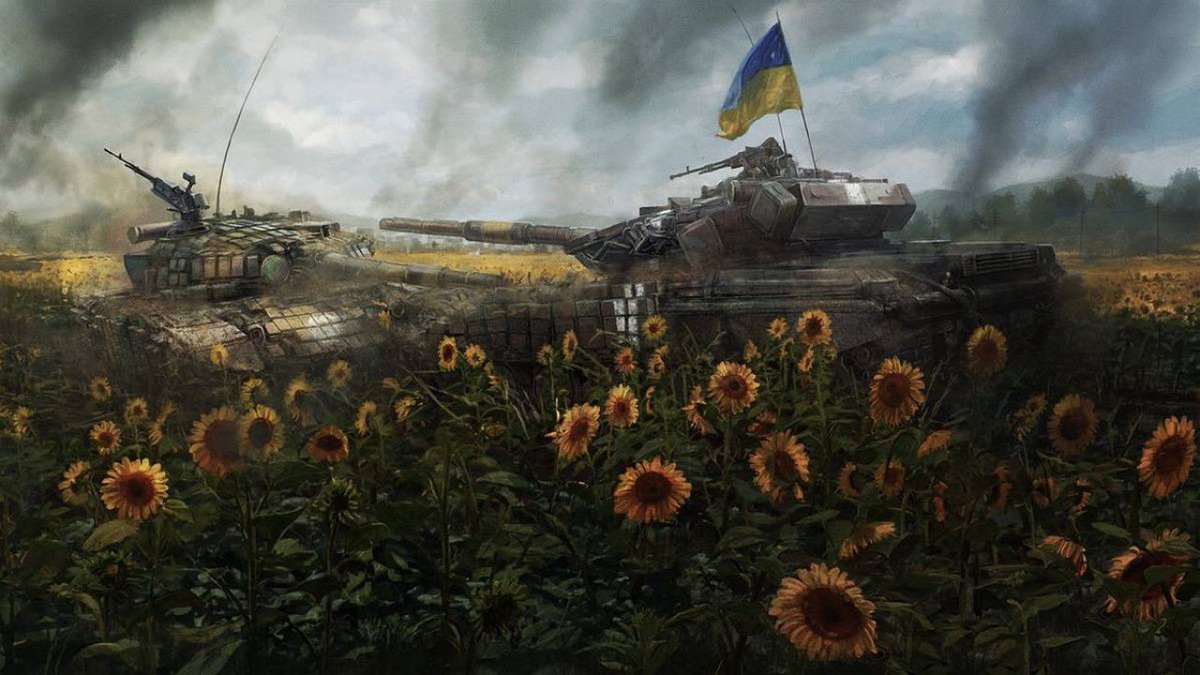
It is impossible for a #military institution to anticipate every eventuality in war. There are too many scenarios to accurately predict pre-war and wartime events. Adaptation is vital, and we have seen it throughout the war in #Ukraine. 1/25 🧵 

2/ Because of this, a key virtue for military organizations in war must be a learning culture and an adaptability to unexpected events, as described in my recent @EngelsbergIdeas article. engelsbergideas.com/essays/how-ukr…
3/ The exploration of adaptation has resulted in the development of concepts that underpin understanding of how adaptation occurs and how it can be applied. In military literature, the best-known adaptive cycle is Colonel John Boyd’s OODA (observe-orient-decide-act) loop.
4/ Other useful studies of military institutions which have been successful at adaptation include @DrAEFox’s superb “Learning to Fight” as well as Murray and Millett’s “Military Innovation in the Interwar Period”. 

5/ In war, belligerents are constantly seeking to outthink and out fight the other side. New technologies are introduced, new ground or objectives are fought over, and new organisations are introduced to exploit new ideas and technologies.
6/ This battle for supremacy – the #adaptation battle – has been taking place throughout the Russo-#Ukraine War. Both sides offer lessons for contemporary military institutions on the learning cultures that underpin adaptation and success at every level of military operations.
7/ Russia adapts. The Russian military went through a period of transformation over the decade before it launched its invasion of #Ukraine. Many of these changes were based on its operational experience in Syria, as well as its hypotheses about the character of future war.
8/ While Russia has been embarrassed by the tactical performance of its forces, it has still demonstrated some learning at the unit and higher levels during the war. Russia has adapted its operational objectives, as well as enhancing unity of effort and multi-domain integration. 

9/ Russia has demonstrated some capacity to learn from its tactical failures. It has adapted on the battlefield, and this has had an impact. But short-term tactical adaptation is simpler than longer term strategic adaptation.
10/ Russia’s ability as a nation to learn and adapt to the economic, diplomatic, informational and other impacts of its flawed strategy to invade Ukraine remains is an incomplete undertaking.
11/ Ukrainian Adaptation. Several Ukrainian adaptations during the war stand out. The first is their tactical adaptations early in the war. They adapted their operations to employ dismounted infantry anti-armour teams to great effect during the Russian advance on Kyiv. 

12/ At the same time, they were able to exploit a lack of coordinated rear area security (and massive military traffic jams) to fight the Russians in the rear areas.
13/ Other Ukrainian adaptations include their exploitation of the information environment, as well as their transition from Soviet to western weapons, munitions and logistics systems. Another adaptation, away from the battlefield, has been Ukrainian crowd funding efforts.
https://twitter.com/DefenceU/status/1565037514888560641
14/ There are other Ukrainian adaptations: adoption of commercial technologies such as drones and information technology for military purposes; and, absorbing foreign combatants and support personnel. nytimes.com/2022/08/28/us/…
15/ There will be many other adaptations on the ground we are not seeing. However, for #Ukraine, the old truism ‘adapt or die’ is quite literal in its application to their military forces, and their nation.
16/ The Counter Adaption Fight. By understanding how their own learning and adaptation process’s function, military institutions can also influence their adversary’s ability to adapt. This theory of counter-adaptation has played out in the real world in #Ukraine.
17/ Russia has actively sought to counter the Ukrainian adaptions to absorb a range of different military and civilian uncrewed aerial systems. The Russian counter adaptation has featured the application of electronic warfare.
18/ The Ukrainians identified the Russian adaptation of their tactics in the east to be ‘leading with artillery’. In response, the Ukrainians undertook diplomacy and an influence campaign to secure accurate, long range strike weapons. 

19/ Others are watching this adaptation battle. The war in #Ukraine has shown how a well-led, motivated and well-supplied defending force can effectively disrupt or even defeat an adversary with superior size and military means.
20/ Both the United States & China have been learning from the war in Ukraine. It is likely that their observations and analysis of the war will result in adaptation to their weapons programs, warfighting concepts, organisations and the training of their personnel.
21/ American scholar Frank Hoffman has written that “the requirement that a force must adapt while it is in combat is built into the inherent nature of war.”
22/ The rapid pace of change in war results in an interactive approach where belligerents are constantly seeking advantage and adapting at many levels concurrently. This adaptation battle, witnessed since the beginning of the Russian invasion of #Ukraine, is central to warfare.
23/ The ability to succeed in this adaptation battle, underpinned by an institutional learning culture, must be a central part of contemporary military force design.
24/ You can read my more detailed exploration of the adaptation battle in my recent article for @EngelsbergIdeas. End. engelsbergideas.com/essays/how-ukr…
25/ Thank you to the following whose images were used in this thread: @KyivIndependent @EngelsbergIdeas @IAPonomarenko @DefenceU @f_o_r_Ukraine @UAWeapons
• • •
Missing some Tweet in this thread? You can try to
force a refresh











